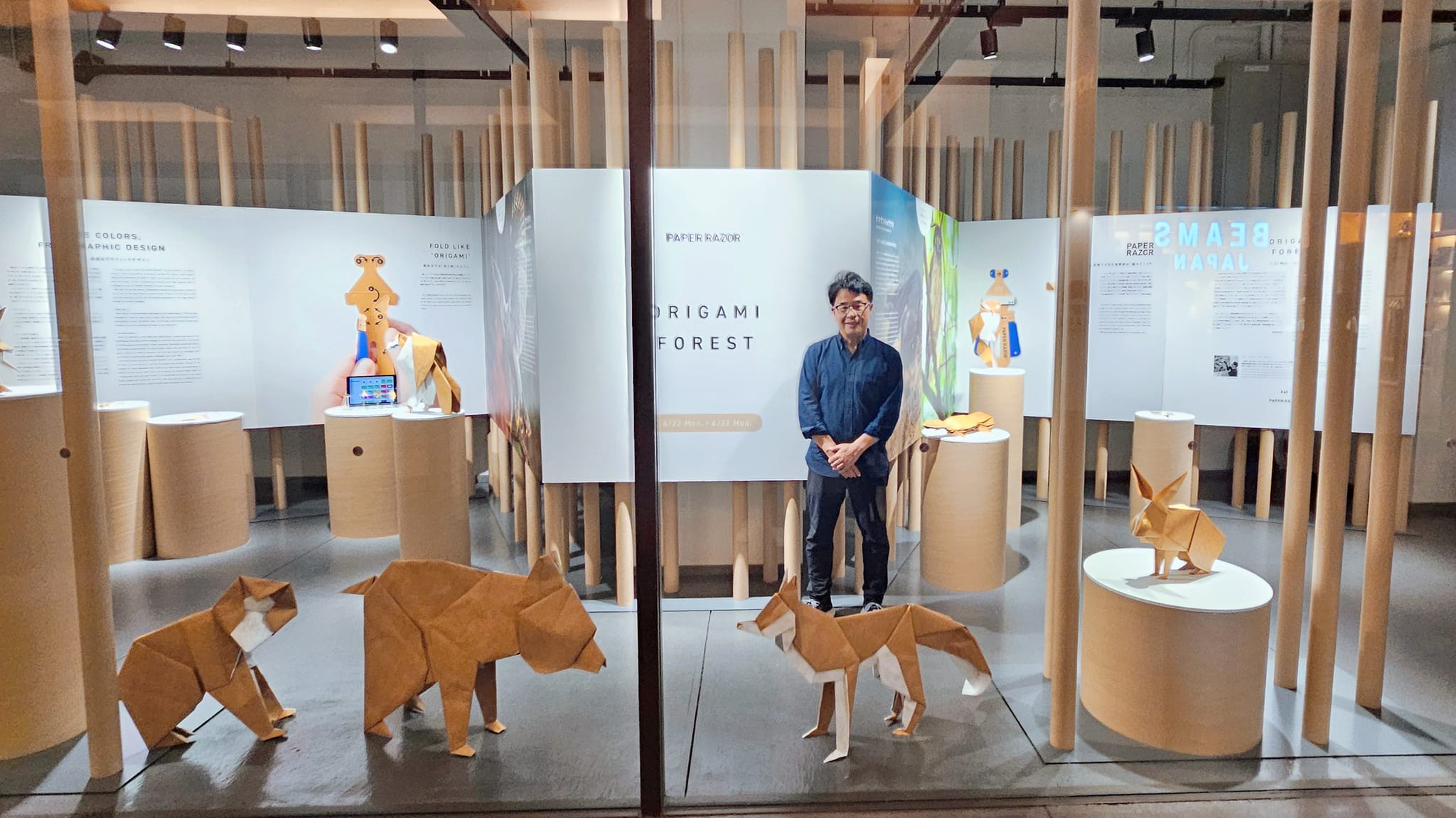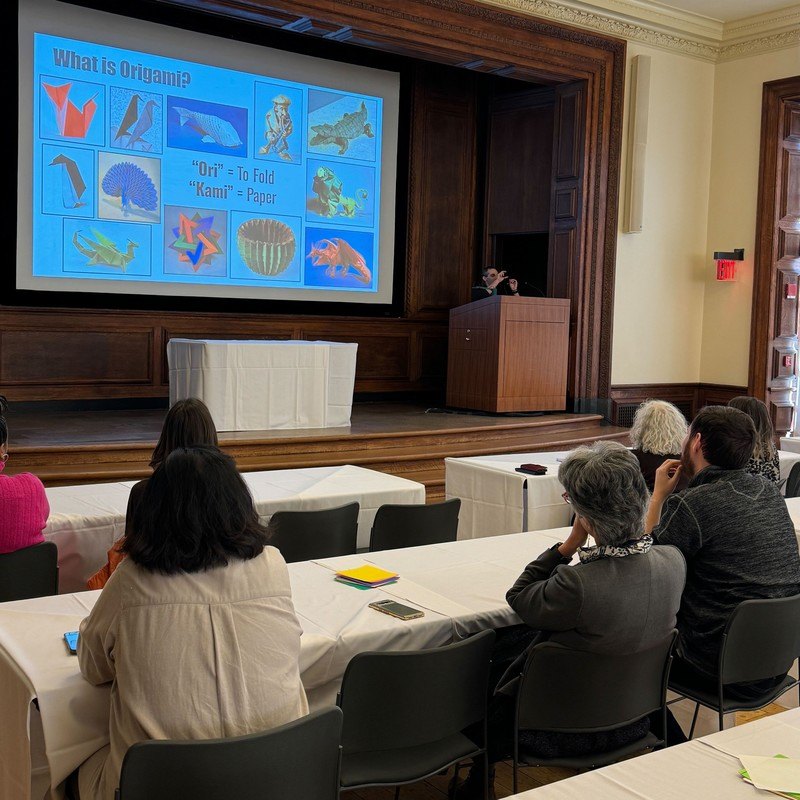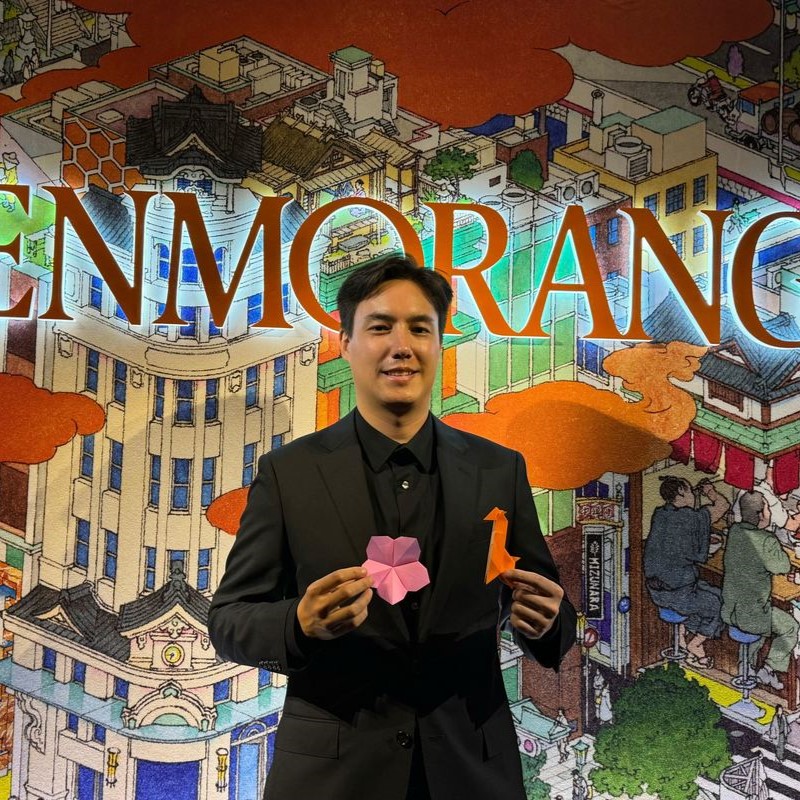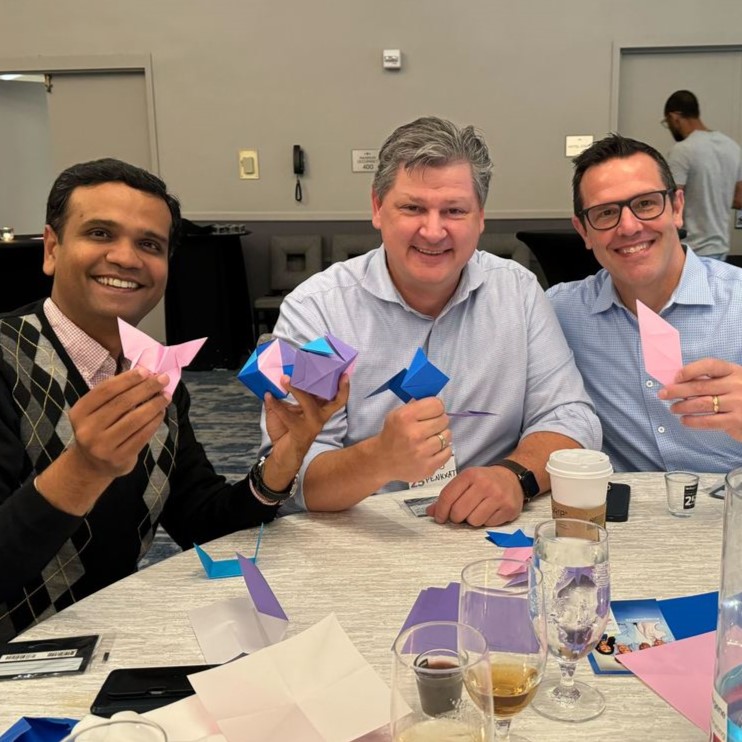
Overview of the Exhibition Event
From April 22 to April 29, 2024, a special pop-up exhibition, “ORIGAMI FOREST,” was held at ShinPuhKan in Kyoto. This event was a collaboration between KAI Corporation, a global cutlery manufacturer, and Ace Hotel Kyoto, renowned as an iconic design hotel. Origami artist Taro Yaguchi contributed his origami works aligned with the event’s concept. The theme was “The Vitality of Paper and a Sustainable Future.” By showcasing Taro Yaguchi’s origami pieces, primarily featuring endangered species, alongside the specially designed “Original Paper Razor” for the event, visitors were invited to explore the possibilities of paper as a material.
This pop-up event was part of KAI Corporation’s initiative focused on “Sustainability” and “Craftsmanship.” Through collaboration with Ace Hotel Kyoto, a new experience emerged, merging art and practical items through the medium of paper. Against the historical backdrop of ShinPuhKan, located in Kyoto, the potential of origami was further accentuated.
Behind the Scenes and the
Challenge of Life-Sized Origami
All of the origami works displayed in the “ORIGAMI FOREST” exhibit were created life-sized, a task far more challenging compared to standard origami. Creating pieces that could hold their shape under their own weight required specialized skills and experience.
Taro Yaguchi drew upon his extensive experience in origami creation, carefully selecting special paper materials that allowed the pieces to stand on their own for the duration of the 10-day exhibition. He has previously created large-scale origami works displayed at Philadelphia Airport for over a year, and that expertise was also evident in this exhibit.
From Prototyping to Completion
The process began with the design phase, where small models were created using standard-sized origami paper. Various color options were considered for the origami works, but ultimately, all the pieces were unified with nature-friendly earth tones. Both sides of the paper, the colored and white surfaces, were utilized to enhance the origami’s authenticity. By starting with small-scale prototypes, Yaguchi accurately calculated the scale ratio to determine the size of paper needed for the final life-sized pieces. He then produced a full-sized prototype, checking the paper’s strength and ability to hold its shape before moving on to the final production.


Creating large origami pieces requires careful consideration of weight and balance. In his studio, Yaguchi repeated trials and adjustments multiple times until finally completing the pieces, which could stand independently and maintain their beautiful forms.

















